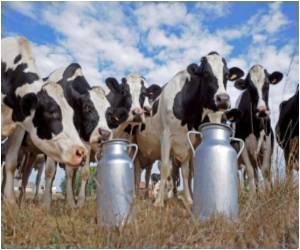Meat of a cloned cow's offspring has entered the food chain and has raised fears of its spread into the food system.

The news came after food safety officials admitted Wednesday that meat from two of the cloned cow's other offspring had entered the food chain in Britain.
The Food Standards Agency (FSA) said that meat from two bulls, Parable and Dundee Paratrooper, "will have been eaten".
The news has fuelled debate in Britain about the ethics and safety of cloning, although experts insist food products from the offspring of cloned animals pose no health risk.
Under European law, foodstuffs produced from cloned animals must pass a safety evaluation and gain authorisation before they are marketed.
The FSA is responsible for authorising "novel foods" such as meat and other products from clones and their offspring and said it had neither granted any such authorisations nor been asked to do so.
Advertisement
But as it carried out this investigation, it discovered that meat from Dundee Paratrooper, which was slaughtered in July last year, had entered the food chain.
Advertisement
Hours later, it also confirmed that meat from Parable, which was slaughtered in May this year, was likely to have been eaten.
In the latest development Thursday, records on the Holstein UK website revealed that three cattle born from the US clone had produced 97 calves.
Smiddiehill Paratrooper had 38 offspring, Smiddiehill Perfect had 58, while Smiddiehill Dundee Paradise had one, according to details on the website.
Campaign groups for animal welfare and organic farming have voiced concern over the issue.
Compassion For World Farming highlighted risks to animal welfare posed by cloning, while the Soil Association voiced safety fears and said the use of clones could reduce genetic diversity within agriculture.
But the National Farmers' Union Scotland said there were "no risks" to human health posed by food products from the offspring of cloned animals.
Professor Hugh Pennington, a leading microbiologist at Aberdeen University, said that while the word cloning "has an H. G. Wells ring to it", the process was "perfectly safe".
"They are just the same as their parents from the genetic point of view so there's no problem there," he said.
Source-AFP









